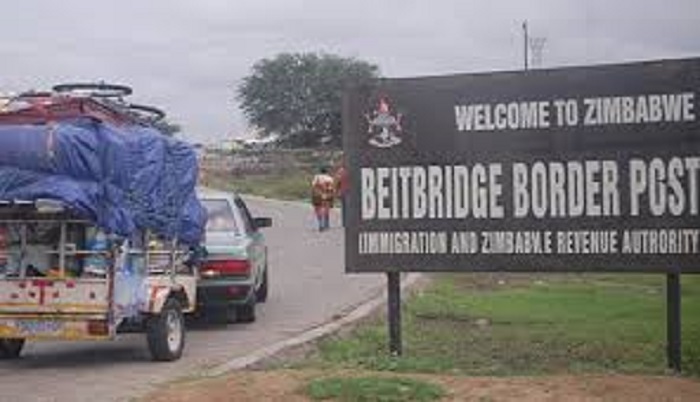Zimbabwe, SA strike Beitbridge Border deal

Zimbabwe and South Africa are working flat out to harmonise management and health systems at Beitbridge Border Post so that more people can cross the Limpopo during the festive season without health risks and without compromising immigration and customs checks.
The border is expected to reopen to vehicular traffic on Tuesday next week after being closed when Covid-19 restrictions started being implemented in March.
Before the restrictions, an average of 35 000 people were cleared at the border daily during peak periods, with 15 000 travellers on a normal day.
At present, Zimbabweans coming home need pre-clearance from the embassy and consulates in South Africa to avoid swamping health testing, while the number of buses is limited.
Besides the traffic between the two countries, thousands of travellers a day from Malawi, Tanzania, Mozambique, Zambia, Democratic Republic of Congo and Angola were cleared at Beitbridge, a problem that is intensified as Botswana tightens its lockdown.
Home Affairs and Cultural Heritage Minister Kazembe Kazembe and his South African counterpart, Dr Aaron Motsoaledi, re-affirmed the need to harmonise the operating environment after meeting in Musina yesterday.
After the meeting, the two ministers along with Health and Child Care Deputy Minister Dr John Mangwiro, Foreign Affairs and International Trade Deputy Minister David Musabaya and law enforcement officials toured the South African side of the border.
Minister Kazembe said preparations had gathered momentum for the continued gradual border re-opening, which will see pedestrians and motorists being cleared this festive season.
Cabinet recently approved the re-opening of Beitbridge, Plumtree, Chirundu, Victoria Falls and Forbes border posts on December 1.
The land borders were closed to passenger traffic at the beginning of the Covid-19 lockdowns across the Sadc region in March
“We have met today with our counterparts in South Africa and we have agreed on a number of areas where we need to collaborate to ensure a seamless movement of traffic during the festive season and beyond,” said Minister Kazembe.
“This is a unique festive season where people have not been able to move due to the Covid-19 pandemic for the better part of the year and there is bound to be more human traffic from next week.”
The two countries would employ the previous border management systems used during peak periods, but with health screening and testing.
Minister Kazembe and Dr Motsoaledi agreed to strengthen the capacity of port health officials to screen and test travellers.
Minister Kazembe said Zimbabwe was not leaving anything to chance and security had already been tightened at the border posts and along the Limpopo River to contain criminal activities.
“We have walked this road before,” he said. “The immigration, security and customs officials have handled huge volumes of traffic before. What we are only doing this time is beefing up staff and improving the capacity of port health officials to screen and test travellers to avoid creating congestion.”
The Ministry of Health and Child Care had already started testing border
workers of Covid-19 to establish the numbers ready for duty.
Dr Motsoaledi said South Africa had addressed congestion challenges which had dogged their side of the border in the last 21 days.
“We are here today to review our strength on the ground with our brothers from Zimbabwe,” he said.
“You are aware we have had challenges of congestion in the last three weeks. This emanated from the fact that Botswana closed its borders and we are now handling most of the transit traffic at Beitbridge.”
Congestion on the South African side had been worsened by commercial truck drivers disregarding the border protocols, which required them to park in truck stops and only leave for the border after customs clearance.
The South African National Defence Force, Musina municipal traffic police and the Limpopo Provincial Traffic Police had been deployed to restore order on the N1 Highway which leads to the border.
In addition, the South African Revenue Service had removed from its procedures, the use of the Customs Notification Document (CN2), following repeated systems breakdown which caused delays in cargo movement.
“We have also met with relevant border agencies on our side to ensure that we strengthen security for both travellers and manage illegal migration between Zimbabwe and South Africa,” said Dr Motsoaledi.
“We need to maintain the current momentum to eliminate delays of travellers. It’s a tradition that we have many people passing through our land borders every December and hence we continue planning ahead.”
–The Herald







